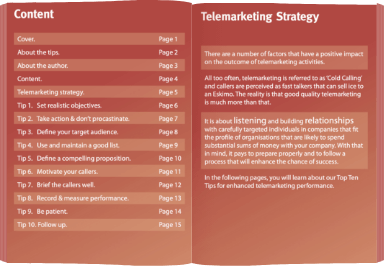People buy emotionally. We don’t mean that they burst into tears at the mere thought of working with you or buying your products. We mean that buyers don’t purchase what you do or what you offer. They buy what it does for them. They buy into what it means for them.
Don’t tell and sell
The trouble is that sales people often sell by telling rather than by enlightening, listening and understanding. They state what their company offers rather than asking effective questions to establish the customer needs in order to diagnose problems that their solutions can solve. They’re too focused on their side of the sales equation.
If we agree with the premise that most individuals are only interested in one thing, i.e. themselves, surely the most effective way to sell to someone is to tap into that psyche. Yet, sales people insist on talking rather than listening. They talk about what they think are the benefits of what they offer but which are really features. 24-hour delivery is great but why is that useful for the customer? It may mean they don’t have to hold stock which ties up space and capital and that means they can more quickly satisfy their customers reducing the risk of problems and penalties.
Check out this blog on how to emphasise benefits on a telemarketing call.
Customers don’t care about what you know until they know that you care
The old adage states that ‘Customers don’t care about what you know until they know that you care’. It’s one that should resonate with every sales person. It’s about building rapport. It’s about showing empathy. It’s about understanding what’s required and acting more like a consultant than someone that wants to make a sale. We’re not saying that every sales person comes across as wanting to make a fast buck. And, we’re not suggesting that every sales interaction is bad. Clearly, some sales result from a clear need and the buyer just wants to make a purchase without any fancy dialogue or engagement. Yet, when it comes to considered purchases and significant investments, there really is only one way.
Pain or Gain?
When it comes to the above type of purchase, customers typically buy based on either pain or gain. They’re either trying to alleviate a problem or improve something. Of course, it isn’t that simple, but it boils down to enhancing something they feel could do with improvement or trying to stop something happening that is detrimental to their business. That’s why the sales person needs to tap in to that need and the psychology of buying.
Customers aren’t stupid for not wanting your products. They have lots of competing priorities. Hence, you need to quickly get the to the point where they see the benefit.
Customers buy you in addition to your solutions
Ultimately, benefits should answer the question ‘what’s in it for me?’. They’re the things that get buyers off the fence and drive them to action. They aren’t what you do. There are likely to be lots of competing suppliers that seemingly offer the same products and services as you do. That means it’s as important to differentiate yourself as it is to promote your solutions. You may make the difference if everything else is equal. But, it’s essential to position what you offer in customer terms. That means you need to work out an approach for any given product or service that helps the customer to achieve something. You need to carefully position what you say in that manner rather than overtly talking about the aspects of what you do.
Benefits make a Good First Impression
If you remember to always ‘think customer’, you’ll be more likely to engender trust from the start of any customer engagement. You’ll also be more likely to reach customer shortlists for new suppliers once they’ve done their initial online trawl and engaged with several ‘potential’ providers. That first impression is all-important. You want to ensure that is more about how you help the customer and what you represent than what you offer. You don’t want to sound like every other sales person that is low on interest in the customer and that is fixated on the sale.
Conclusion
Ultimately, if, for every customer and prospect engagement, you start with the customer in mind, you won’t go far wrong. Forget about your products and services for a moment. Remove the focus on selling and telling. Understand the genuine benefits of using your company as a supplier. Consider the challenges that your customer has. Within reason, try to remove any preconceived notions of what you want to promote. And, listen to the customer’s needs first and foremost. If you do that. you’ll me more likely to gain the attention of the decision-maker, earn their trust and, ultimately, win more of their business.






